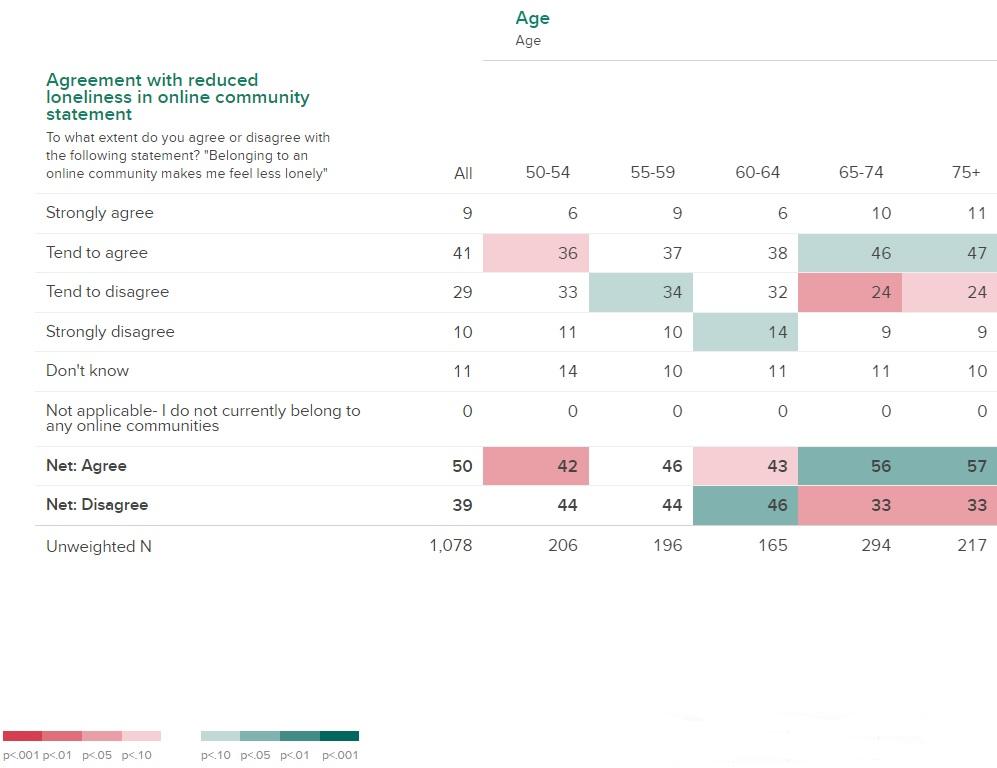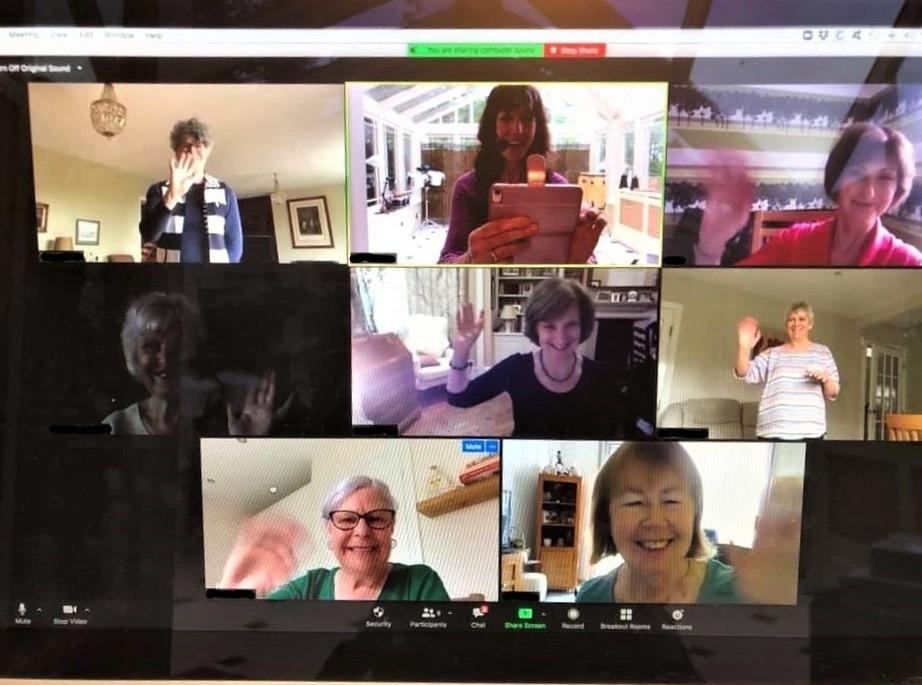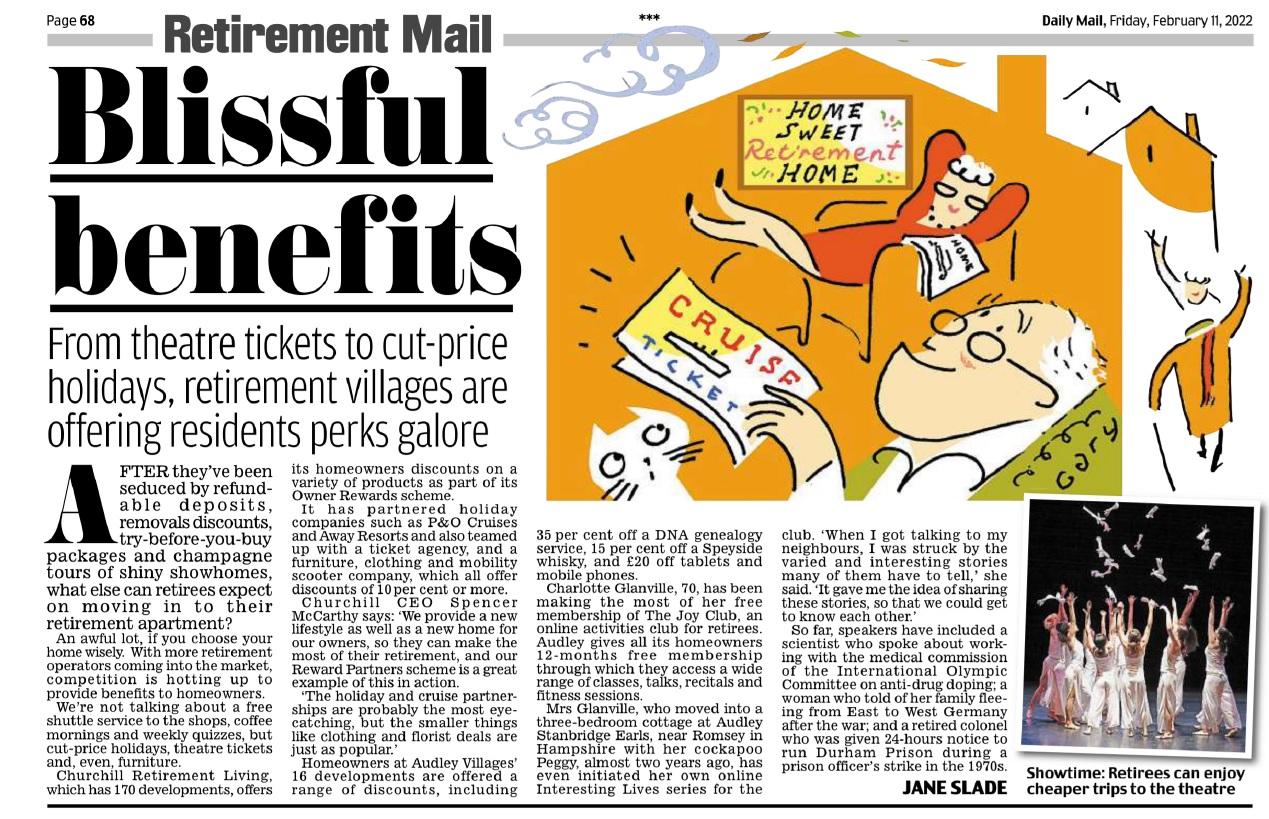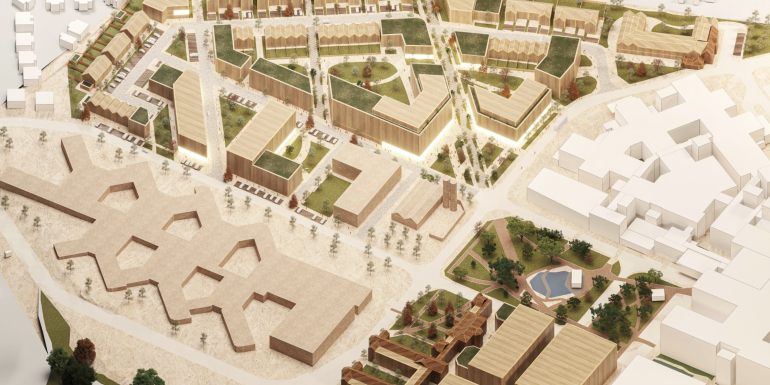
By Hannah Thomson, Founder CEO at The Joy Club
“But doesn’t community happen face-to-face for people in later life?”, is a question I get asked a lot.
It is a pertinent question. Over the last few years, the pandemic has forced us all to moderate our face-to-face participation in communities. At times, we’ve been required to isolate ourselves entirely and – even now, as we dare to enjoy our freedom again – the virus has changed our way of approaching gatherings and interactions.
The internet enabled us to stay connected during this period – we’ve been able to communicate with one another and even migrate some of our community activities, like group events, to a screen. But online community was a necessity, a second best, and getting back to face-to-face should be the priority, as online community doesn’t really make us feel less lonely – right? Well, the data may suggest otherwise.
As the Founder CEO of The Joy Club, an online community and activities club for retirees, you may expect that I’d have a particular view on this. So, we commissioned some third-party research from YouGov, across more than two thousand people in later life who are not users of The Joy Club, to get an authoritative and objective read on the topic. The participants were asked, ‘To what extent do you agree or disagree with the following statement? “Belonging to an online community makes me feel less lonely.”’
What we found surprised even us. The older someone is, the more likely they are to find online community effective in combating loneliness. 57% of online community members aged 75 and over agree that those communities make them feel less lonely - 36% more than members aged 50-54 - according to the YouGov poll.
When we asked members of The Joy Club, 94% told us that they feel The Joy Club has the power to make people feel less lonely – you can see member of The Joy Club, Sandra, and myself discussing this on Sky News here during the particularly isolating rise of Omicron last Christmas.
Importantly, our members tell us that online community and activities have evolved into something beyond necessity for them, even if that was how their involvement began. The modality allows our members to try things they wouldn’t have had the confidence to do in real life – wonderfully illustrative of this, is the popularity of The Joy Club’s classes on belly dancing, burlesque and (the history of) swearing. Our online events enable our members to dip their toe into something that might feel intimidating, observing in the background with their mic and camera off, or participate actively with their mic and camera on - buoyed by a feeling of safety and acceptance amongst like-minded peers.
We’ve observed many other benefits of online community for this demographic. For example, we use technology to deliver a personalised experience for our members – based on their interests, individual members will be presented with recommendations of live online events, articles and conversations that we think they might enjoy. Moreover, through online community, we can empower our members to be content creators – not just content consumers. Our most popular events and articles have come from members themselves, which speaks to their experience, energy and humour – as well as the desire to be part of a supportive online community, where they feel seen and heard.
We’ve come to understand that there are varying preferences when it comes to community participation, across the introversion to extraversion scale. We are building our community in a way that accommodates these varying preferences. To only consider extraverted community participation valid, is to invalidate the importance of the joy that introverts get from their quieter and more passive notion of belonging (we fondly describe this group of members as our ‘joyful lurkers’ at The Joy Club!). There is a danger of infantilising these people, by forcing them to ‘join in’ when they might prefer to lurk. This is important to consider, I venture to suggest, when it comes to Integrated Retirement Communities.
We are fortunate to be blazing the trail with Audley Villages on this, with them providing membership to The Joy Club as part of their Live Well, Stay Well initiative for homeowners. Audley homeowners enjoy the beautiful surroundings and facilities of their village, the schedule of in-person events, the kindness of staff and the complimentary online activities, articles and community through The Joy Club.
We have found that it is the villagers themselves who have driven a holistic integration, with Audley homeowner Ms Glanville evolving her village event into an online event through The Joy Club. Through The Joy Club, her ‘Interesting Lives’ interview was accessible to Audley homeowners in her own village, other villages and the thousands-strong membership base of The Joy Club as a whole. The event was a great success with attendees - and even made it into the pages of the Daily Mail.
It is my view that the pandemic accelerated and highlighted a trend around online community participation for people in later life – but the trend is not tied to the pandemic itself, it was underway before the pandemic and we’ll continue to see it rise. For example, the Pew Research Center found that social media usage had doubled amongst people aged over 65, from 13% to 26%, between 2009 and 2010 - long before Covid-19 became part of our vocabulary. The future is hybrid. We should consider the digital and physical dimension of community building, to enable choice, diversity of experience and joy – in whatever shape that takes for the individual.







